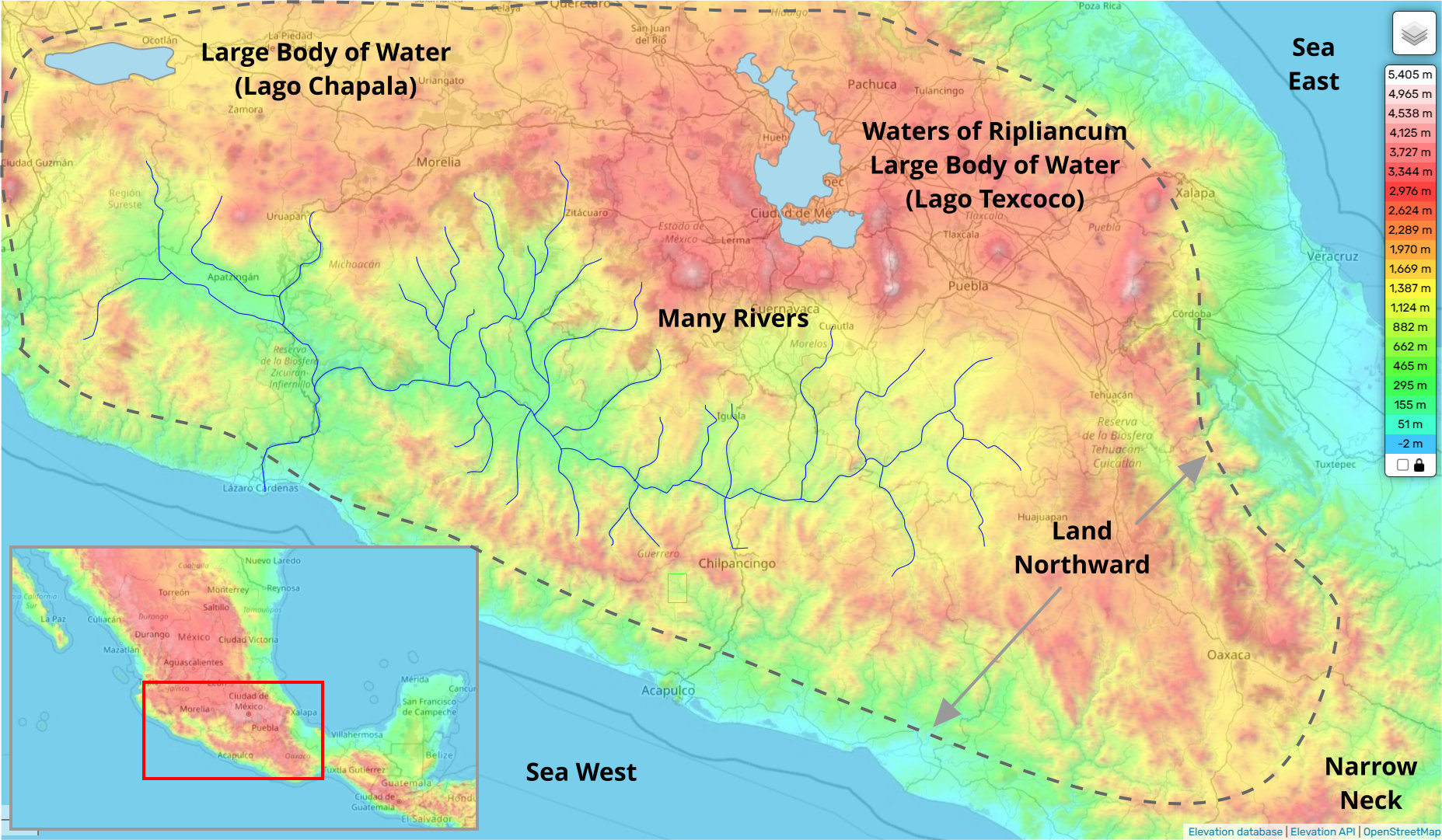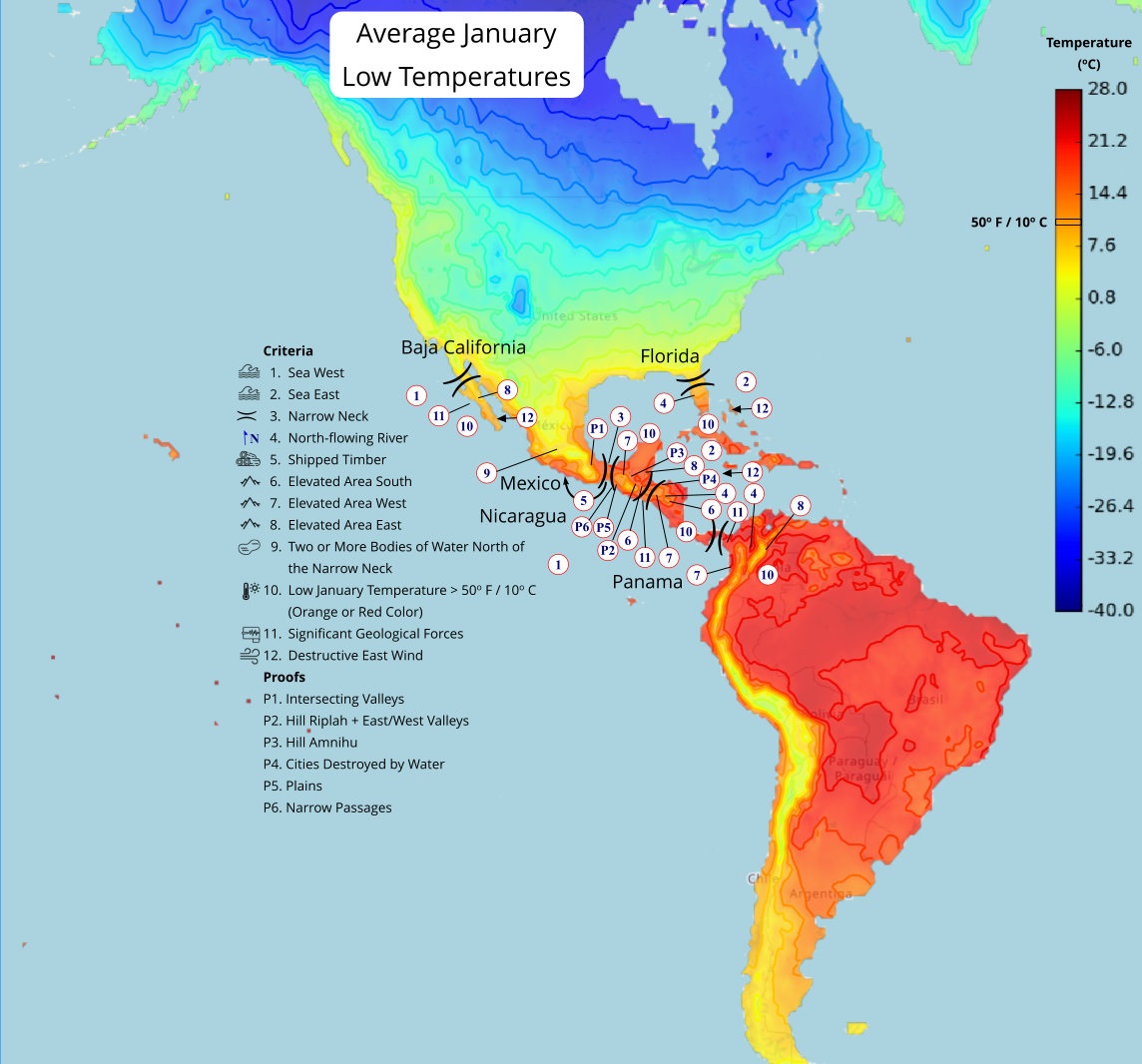The Book of Mormon describes that the land northward has more than one lake (body of water).
ALMA 22:30 [50:29]: Therefore, Morianton put it into their hearts that they should flee to the land which was northward, which was covered with large bodies of water, and take possession of the land which was northward.
ALMA 22:32 [50:31]: And it came to pass that she fled, and came over to the camp of Moroni, and told Moroni all things concerning the matter; and also concerning their intentions to flee into the land northward.
- Commentary: This verse references the places of the land northward, the land which was northward, and Morianton. Morianton was in the land of Morianton at this time. The land which was northward had large bodies of water. Since 'bodies' is plural, there are at least two large bodies of water in the land northward. The 'land which was northward' is referred to as the land northward in Alma 22:32 [50:31].
HELAMAN 2:4 [3:4]: And they did travel to an exceeding great distance, insomuch that they came to large bodies of water, and many rivers;
- Commentary: This verse references the places of Desolation, land Northward, waters of Ripliancum, and Zarahemla. The term 'they' refers to people from the land of Zarahemla. People were leaving the land of Zarahemla to go to the land northward. The term 'bodies' is plural, so there were at least two large bodies of water (lakes) and many rivers near, or in, the land northward.
ETHER 6:80 [15:8]: And it came to pass that he came to the waters of Ripliancum, which, by interpretation, is large, or to exceed all; wherefore, when they came to these waters, they pitched their tents; and Shiz also pitched his tents near unto them; and therefore on the morrow, they did come to battle.
- Commentary: The waters of Ripliancum were located in the land northward (see Intersecting Valleys Proof) and is one of the 'large bodies of water.'
Isthmus of Tehuantepec (Mexico) Model Assessment:
North of the Isthmus of Tehuantepec are two large bodies of water. One is Lago Chapala and the other is Lago Texcoco - which before it was drained in 1607 was the largest body of water in the Mexico region. The proof of the Intersecting Valleys indicates that the location of Lago Texcoco would be the waters of Ripliancum mentioned in ETHER 6:80 [15:8]. The description of the waters of Ripliancum being 'large, or to exceed all' matches with Lago Texcoco being the largest body of water in Mexico. The valley system of the Rio Balsas in central Mexico is made up of 'many rivers' as described in HELAMAN 2:4 [3:4].
Land Northward Bodies of Water (Isthmus of Tehuantepec)

(Tap to Expand)
Heartland Model Assessment:
Regarding the location of the land northward and large bodies of water, the Heartland Model relies on statements made by Joseph Fielding Smith - 'I agree with Joseph Fielding Smith’s wonderful information below.' The information states, 'RIPLIANCUM. Supposed by some to be lake Ontario, but evidently one of that great chain of lakes...I would not say as above, "supposed by some", but that I feel strongly Ripliancum is Lake Ontario' [reference]. The Heartland Model also makes statements that Lake Ontario is the Sea East (see Sea East). None of various Heartland Models names Lake Superior (the great lake that exceeds all the other great lakes in size) as Ripliancum and there is no explanation why the smallest of the great lakes by surface area is considered to be Ripliancum.
Candidate Narrow Neck locations:
These locations meet the basic requirements for having two or more large bodies north of a narrow neck.
- Two or more large bodies north of a narrow neck
- Many rivers north of a narrow neck
Mexico

(Tap to Expand)
Click here for more information on the Mexico location.
×
![]()
